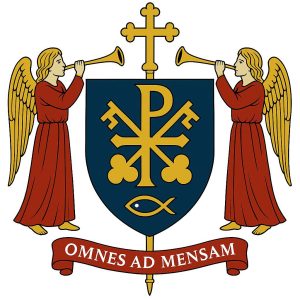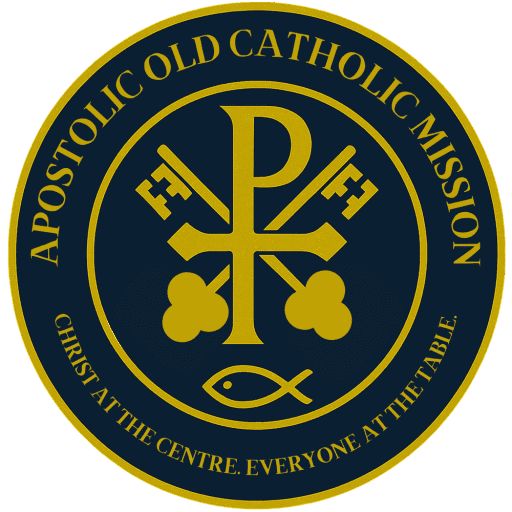Apostolic Succession
We don’t invent our authority —
we receive it. Through valid, historic ordination,
our mission stands in continuity with the apostles.
Historic, valid, and unbroken
Our Apostolic Lineage
Apostolic succession refers to the unbroken line of ordained ministry passed down from the apostles themselves — through the laying on of hands, in prayer and sacrament — from bishop to bishop and priest to priest. It is not a claim of superiority, but a recognition that the ministry we exercise today is not self-appointed or invented. It is received.
The apostolic succession of the Apostolic Old Catholic Mission is valid and historic. We trace our episcopal lineage through Old Catholic and independent sacramental lines that pass, among others, via the Bulgarian Old Catholic Church (BOCC), which claims its own historic lineage from the Old Catholic Churches of Europe and, further back, from the ancient catholic sees, including Old-Catholic Churches of the Union of Utrecht.
Our Rector, Rev. Fr Ashley R. Deutschmann, was ordained priest on 18 May 2025 by Archbishop Svetoslav Vassileff within the Bulgarian Old Catholic Church. Through that ordination, the Mission shares in a recognised line of apostolic succession. Today, however, our sacramental life is carried forward in collaboration with bishops of the wider independent sacramental movement, particularly through our close bond with Archbishop Ronald Saunders and the Apostolic Catholic Church. We exercise this succession not to claim status, but to serve.
What matters most is not the paperwork, but the faithful stewardship of the ministry Christ entrusted to his apostles — and that is what we seek to carry forward: humbly, reverently, and without clerical pretence.
Recognised. Misunderstood. Still faithful
Key Documents and Clarifications
We understand that terms like “apostolic succession” can raise questions — especially in a world where many Christian communities operate without it. We want to be clear: we do not claim to be the only valid church, nor do we deny the presence of God’s grace in traditions that do not hold to apostolic succession as we do.
But we do believe — with grace and humility — that apostolic succession matters. Not as a mark of superiority, but as a sacred thread of continuity with the apostles and the early Church. It is not about status. It is about stewardship.
The Declaration of Utrecht (1889), foundational to the Old Catholic movement, affirmed core Catholic beliefs — including the sacraments, apostolic succession, and conciliar governance — while rejecting innovations imposed without consensus. It reaffirmed that apostolic succession is a gift to be handed down, not a title to be claimed. It also upheld freedom of conscience, pastoral flexibility, and the importance of inclusion.
In Dominus Iesus (2000), the Roman Catholic Church acknowledged that churches like ours — those with valid apostolic succession and proper Eucharistic theology — “have true sacraments” and are considered “particular Churches”, even if not in full communion with Rome. This is not about seeking approval. It simply recognises that our ministry flows from the same Christ, through the same apostolic tradition, with the same grace.
We are independent, yes. But independence is not the same as irregularity, and it certainly isn’t the same as invalidity. Our apostolic succession — through the Bulgarian Old Catholic Church — is real, historical, and theologically recognised. We exercise it not to control, but to serve.
That’s the heart of it: We receive in order to give. We carry what others have passed on — not to protect it behind locked doors, but to offer it freely at the table of Christ.


